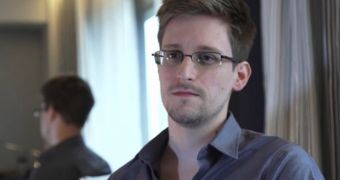Edward Snowden, the man who became known all over the world after leaking classified details on the US National Security Agency’s PRISM surveillance program, has reiterated the fact that the United States is “hacking everyone everywhere.”
In an interview he had with the South China Morning Post on Wednesday, Snowden has revealed that the NSA has conducted over 61,000 global hacking operations.
“We hack network backbones – like huge internet routers, basically – that give us access to the communications of hundreds of thousands of computers without having to hack every single one,” Snowden said.
According to some documents possessed by the whistleblower, the NSA has been hacking computers from China and Hong Kong since 2009.
The evidence that’s in Snowden’s possession doesn’t say anything about the Chinese military. Instead, the NSA’s targets appear to be universities, public officials, students and businesses.
He claims that of the 61,000 hacking operations carried out by the NSA, hundreds targeted computer systems from the mainland and Hong Kong.
Snowden’s allegations shouldn’t be surprising, especially after we have learned that the NSA’s Fort Meade complex in Maryland houses a secretive cyber unit called the Office of Tailored Access Operations (TAO).
TAO is said to have carried out cyber operations for the last 15 years, many of which against China.
In addition, Chinese officials have started to respond to the numerous accusations made by US officials. The country’s CERT has issued a report which shows that in the first quarter of 2013, over 2.9 million mainframes from China were hijacked with the aid of more than 4,000 US-based control servers.
Over the past weekend, US President Barack Obama had a meeting with his Chinese counterpart.
White House National Security Advisor Tom Donilon said that Obama warned Xi Jinping that cybersecurity concerns might have an impact on economic relations, but experts doubt that he pressed the Chinese president too much on cyber espionage issues, considering that the US is also launching such operations.

 14 DAY TRIAL //
14 DAY TRIAL //